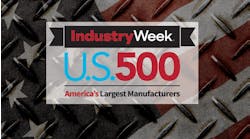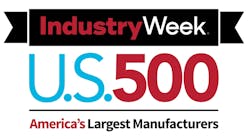The Manufacturer's Agenda: How to Attract Millennials to Solve the Skilled Workforce Shortage
It seems I touched a nerve with last month's column calling for manufacturing leaders to do their part to solve the skilled worker shortage by changing how they lead production staff -- by treating them as professionals. If the response is any indication, you should know that this idea, while not new, is gaining widespread appeal and, with the millennial cohort coming aboard, increased urgency.
The good news is: So few executives and managers understand the importance of this approach that, if you start now, you can gain a decided advantage over your competitors.
It's impossible in this brief column to detail the actions you need to take to change how you lead production professionals. To start, review IndustryWeek's online treasure trove of case studies and other reports that describe real-world examples at www.iw.com/skilled_professionals. Also read IW's interview on the topic with business strategist Gary Hamel.
Oh, and the millennial generation -- that troublesome, demanding group we're trying to attract to manufacturing -- is all but demanding it. Of all that we know about millennials and how manufacturers are working to attract them (see our latest, "The iGeneration Comes to Manufacturing (We Hope)"), one fact is clear: They expect to be treated as professionals.
Kenneth J. McGuire, president of the Management Excellence Action Coalition, in his response to last month's column, nicely sums up what's required and what you're up against: "Young people today want to be part of an organization that stands for something relevant -- to be part of a clear organizational vision with a defined mission and solid values with definite measurable objectives to achieve. Many big manufacturing companies have these, but so does Starbucks. Too few small and medium-sized manufacturing companies actually do. To attract young people, these values need to be prominent and promoted.
"Young people also want some sense of where a job leads. They expect to be on-boarded, receive guidance, and maybe be assigned a mentor to help them. They want a career path with short- and long-term objectives coupled with rewards for achieving them. And young people want to be engaged, teamed up with their peers to leverage other's experience to accelerate their own learning. And, finally, young people expect to receive continuous training, as well as feedback on how they are doing. Absent these things, young people might rather choose to be a 'barista,' so at least they could 'inspire and nurture the human spirit -- one person, one cup and one neighborhood at a time.'"
| Find the best business books about effective workforce leadership strategies at iw.com/workforce/best-books. |





